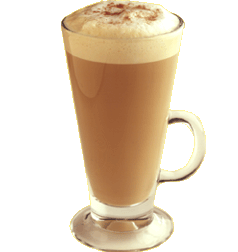 Eric Wamanji
Eric Wamanji
Thanks to the crave, coffee shops are sprouting all over Nairobi City to sate this crave. Take that area west of Kimathi St.; North of City Hall Way; south of Kenyatta St.; east of Koninange St; it smells of coffee – Nairobi’s emerging Coffee District. Here at entrances, the neon blinks “Coffee House.”
Sill, satellite districts abounds in almost all shopping malls. From Yaya to Sarit; from Junction to Westgate; these ritzy temples of capitalism are coffee breweries too!
That coffee houses have been a novelty, is indisputable. To be part of this novelty and the grandiose realm of sobriety and repute comes with a price – the sacrificial last pence. And the more one spends, the more hooked he gets.
Ordinarily, society treats coffee as an elitist, even luxurious drink, be it at home or café. That is why your mug of carefully brewed coffee will leave you less Sh. 100 – Sh. 300
Now you know that there is The Coffee and there is coffee. The former is found in the ‘hallowed’ places, the latter, well, goes for as little as 20 bob!
And thus, coffee shops have continued to brew a legion of followers. They have become places of cascading stories so spiced, so bottomless, as if the caffeine lubricates the tongue.
The coffee craft has been perfected with barristers taking refresher trainings and developing new products. According to Wambui, her outlet serves the Kenya AA -the highest coffee grade.
And just like the airline industry, the shops are not leaving any chance on service. They are investing into employee training so that beyond everything else, you are at least assured of a little nice smile!
Love brewed in the coffee mug
And romance and coffee seem to find a perfect confluence. Many love affairs are known to have been brewed over a mug of coffee. It is as if coffee is the potion of the city lass whose charming aroma is simply magical. Or is it that coffee is an ode that mellows the soul? What explains the scramble for lovers’ seats in these shops?
“Coffee shops provide a suitable environment for dating,” affirms Stella Muriithi, a sociologist. “The serious man knows that a wife is not sourced from the dance-floor. Most men would prefer the girl of the coffee house for a wife as opposed to that of the club house,” Murrithi reveals.
But the fad can also be attributed to the readily available disposable cash, and the fact that yuppies today prefer sobriety. “It’s an indicator of a thriving economy,” Muriithi observes. But for the teetotaler, the bistro is an alternative.
Still, if you want to get the pub feel, well, there is a high stool at the counter where you can perch and order a short of espresso.
And the coffee shops know how to attract and retain clientele. Take Java House for example, with their free wireless internet it is easier to surf and work. It is lovely for journalists, writers, designers to work outdoors. Savanna -with comfy lounges – just makes it ideal for business palavers.
Public sphere
Those with political instincts find the coffee shop a good platform to interrogate policy and governance. ‘The Mug’ is case in point. The clientele here is mostly mature men of Somalia extraction sipping black coffee and engaging in animated debates.
This is classical. In the 1800s, writes Jurgen Habermas in the Structural Transformation of the Public Sphere: an inquiry into a category of bourgeoisie society: the coffee houses of France and London were the arenas where revolutionary ideals were brewed and ushered in democracy to the world. One wonders if with every stir of coffee, Nairobi is on the path of a democratic revolution.
